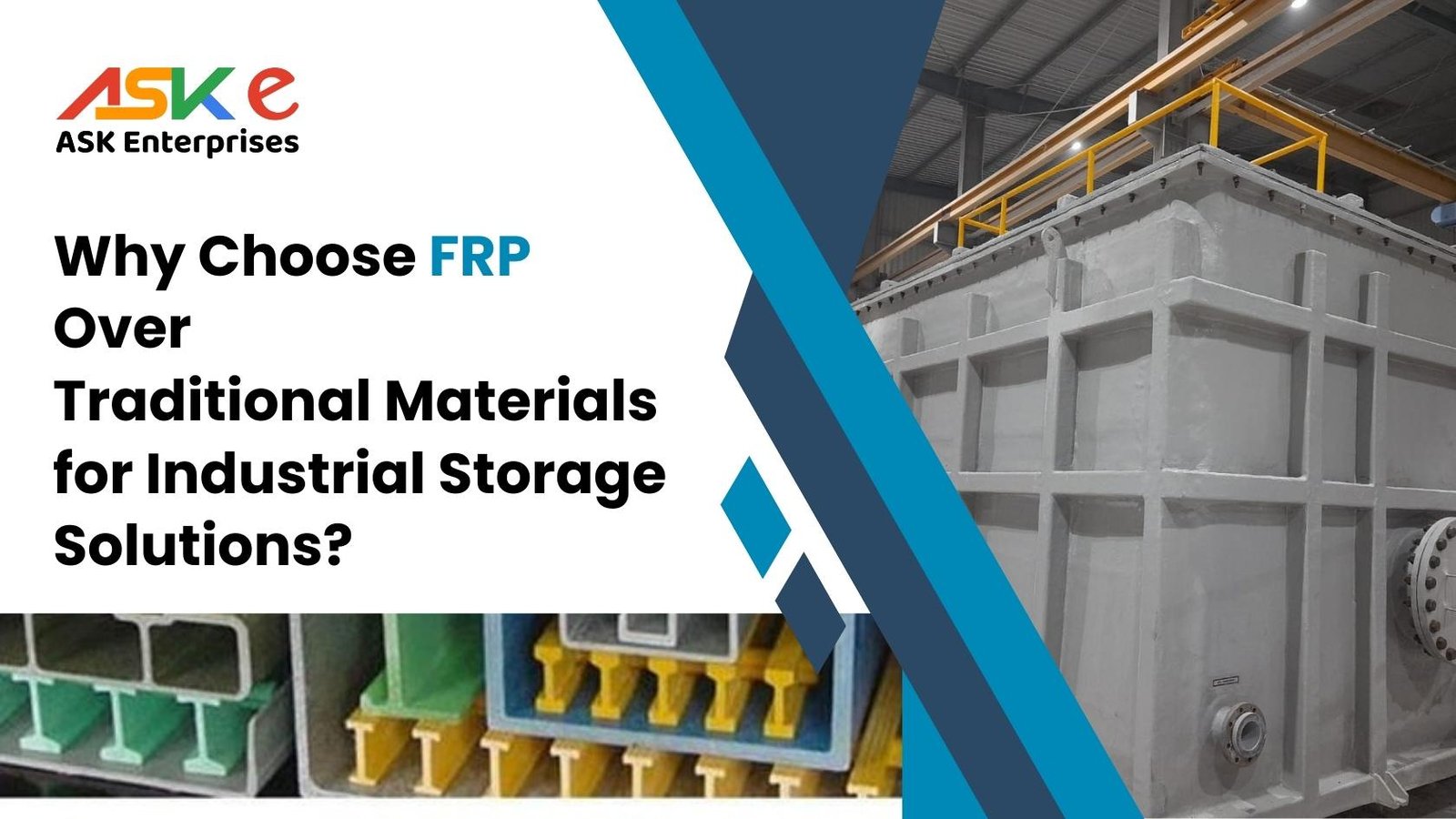Choosing the right material for industrial storage tanks is crucial for ensuring safety, longevity, and cost efficiency. Fiber Reinforced Plastic (FRP) has become a popular alternative to traditional materials like steel, concrete, and wood. Let's explore why industries are increasingly opting for FRP and how it benefits various sectors.
1. Outstanding Corrosion Resistance
FRP stands out for its excellent resistance to corrosion. Unlike steel, which rusts when exposed to moisture and chemicals, FRP remains unaffected. This makes it perfect for industries that handle corrosive substances:
- Chemical Industry: Chemical plants need storage tanks that can withstand acids, solvents, and other harsh chemicals. FRP tanks are ideal because they don’t corrode, ensuring safe and long-lasting storage.
- Oil and Gas Industry: FRP tanks are resistant to the corrosive effects of crude oil and various petroleum products, making them a reliable choice for oil storage.
2. Lightweight Yet Strong
FRP is both lightweight and strong, offering a unique combination of benefits:
- Easy Transportation and Installation: FRP tanks are much lighter than steel or concrete tanks, making them easier and cheaper to transport and install. This is especially beneficial for industries in remote locations.
- High Strength: Despite being lightweight, FRP is very strong and can withstand high pressure and stress. This makes it suitable for large storage tanks used in various industries.
3. Long-lasting Durability
FRP tanks are known for their long-lasting durability. They resist damage from:
- Environmental Factors: FRP is unaffected by UV rays, extreme temperatures, and weather conditions, ensuring a longer lifespan compared to traditional materials.
- Chemical Exposure: FRP tanks can endure prolonged exposure to harsh chemicals without degrading, which is crucial for industries like pharmaceuticals and chemicals.
4. Low Maintenance
FRP tanks require very little maintenance, which saves time and money:
- No Need for Coatings: Unlike steel tanks that need regular anti-corrosion coatings, FRP tanks remain maintenance-free, reducing long-term costs.
- Less Downtime: Industries benefit from reduced downtime as FRP tanks rarely need repairs, ensuring continuous operations.
5. Versatility and Customization
FRP can be easily customized to meet specific industry needs:
- Custom Shapes and Sizes: FRP tanks can be molded into various shapes and sizes, allowing industries to design tanks that fit their specific space and capacity requirements.
- Enhanced Properties: FRP can be combined with other materials like PVDF (Polyvinylidene Fluoride) for added benefits like increased chemical resistance and thermal stability.
6. Cost-Effective in the Long Run
While FRP tanks might have a higher upfront cost, they prove to be more cost-effective over time:
- Long-Term Savings: The durability and low maintenance of FRP tanks lead to significant savings on repairs and replacements.
- Installation Savings: The lightweight nature of FRP reduces transportation and installation costs, making it a more economical choice.
7. Safety and Environmental Benefits
FRP offers additional safety and environmental advantages:
- Non-Conductive: FRP is non-conductive, reducing the risk of electrical hazards in industrial settings.
- Eco-Friendly: FRP does not release harmful chemicals into the environment and is recyclable, supporting sustainable industrial practices.
Industry Applications
Chemical Industry:
- FRP tanks store acids, solvents, and other corrosive chemicals safely.
- Their corrosion resistance ensures long-term, safe storage without the risk of leaks.
Pharmaceutical Industry:
- FRP tanks are used to store raw materials and finished products, maintaining purity and safety.
- The easy customization of FRP tanks allows for specialized storage solutions.
Oil and Gas Industry:
- FRP tanks store crude oil, refined products, and chemicals used in processing.
- Their lightweight nature simplifies transportation and installation in remote locations.
Water Treatment:
- FRP tanks are ideal for storing and treating water, resisting the chemicals used in water treatment processes.
- They ensure the longevity and reliability of water treatment facilities.
Conclusion
FRP offers numerous advantages over traditional materials for industrial storage tanks, including outstanding corrosion resistance, lightweight strength, long-lasting durability, low maintenance, and cost-effectiveness. ASK Enterprises specializes in providing high-quality, customized FRP storage tanks for various industries, ensuring reliable and efficient storage solutions.
For industries looking to upgrade their storage systems with durable, efficient, and cost-effective solutions, FRP is the way to go. Contact ASK Enterprises today to discover how our FRP storage tanks can benefit your operations.

